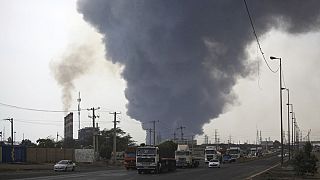Air pollution
A recent World Bank report suggests that with focused policy measures, the number of individuals facing hazardous levels of air pollution could be reduced by half by 2040.
The research indicates that outdoor air pollution is responsible for approximately 5.7 million deaths each year, with 95 percent of these fatalities occurring in low- and middle-income nations.
Additionally, it results in economic losses equivalent to nearly 5 percent of the global GDP due to health issues, decreased productivity, and shorter life spans.
The report titled “Accelerating Access to Clean Air on a Livable Planet” emphasizes that policy reforms can significantly lower the number of people exposed to elevated levels of PM2.5 (fine particulate matter measuring 2.5 micrometers or less).
The majority of outdoor air pollution is attributed to human activities, so implementing changes in sectors such as agriculture, urban development, transportation, and industry, along with residential cooking and heating, can effectively decrease harmful particulate matter in the atmosphere.
In certain areas, desert dust also plays a notable role in contributing to fine particulate matter levels.











02:02
New report finds only seven countries met world clean air standards in 2024
01:00
Second day of extreme pollution in Sarajevo
01:11
Climate crisis takes centre stage at G20 summit in Brazil
01:40
Study finds private jet emissions have surge over past five years
01:37
Senegalese women call for climate justice ahead of COP29 summit
Go to video
World Bank cuts 2024 growth forecast for Sub-Saharan Africa over Sudan